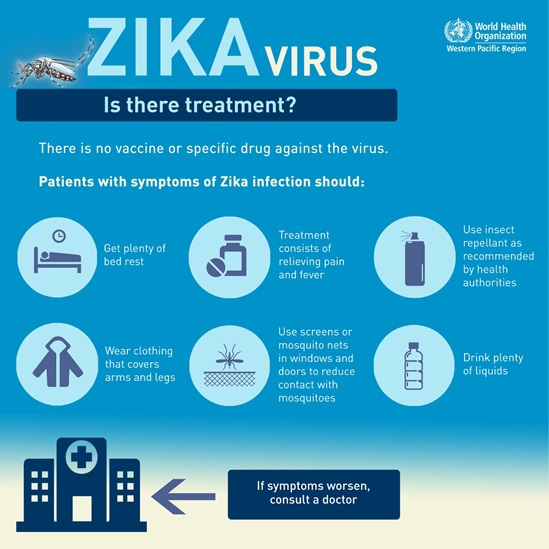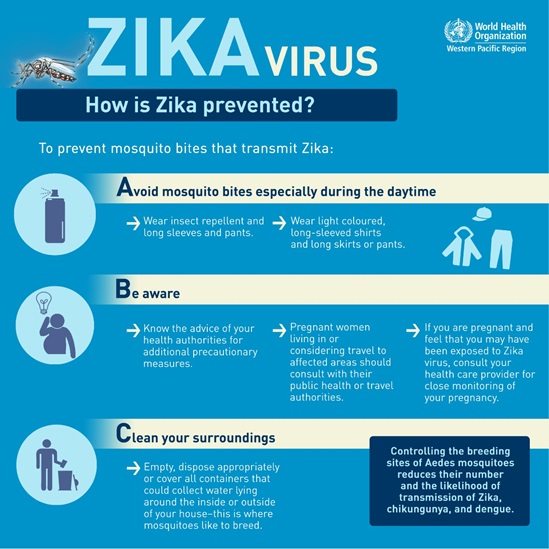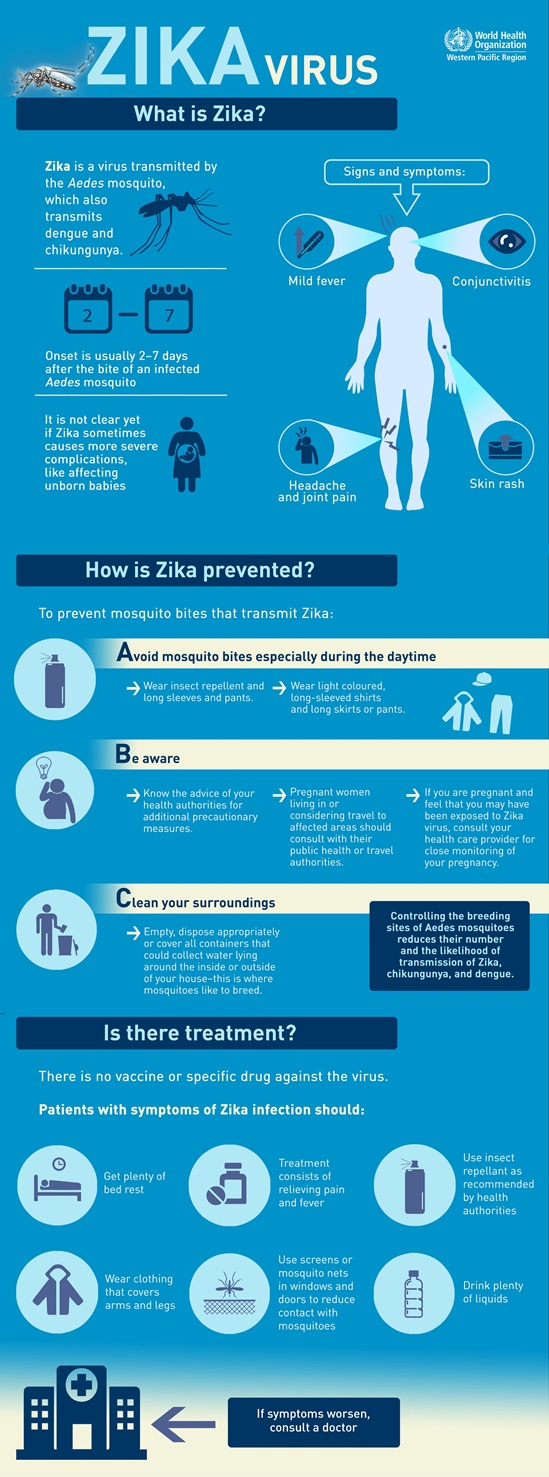
Zika virus in the Western Pacific
Zika virus is transmitted to people through the bite of an infected mosquito from the Aedes genus, mainly Aedes aegypti, in tropical regions. This is the same mosquito that transmits dengue, chikungunya and yellow fever.
The symptoms of Zika virus disease are similar to other arbovirus infections such as dengue, and include fever, skin rashes, conjunctivitis, muscle and joint pain, malaise, and headache. These symptoms are usually mild and last for 2-7 days.
Based on the available evidence, WHO has concluded that Zika virus infection during pregnancy is a cause of congenital brain abnormalities, including microcephaly; and that Zika virus is a trigger of Guillain-Barré syndrome.
Technical links

/59748.tmb-300v.png?sfvrsn=9885965b_2)







